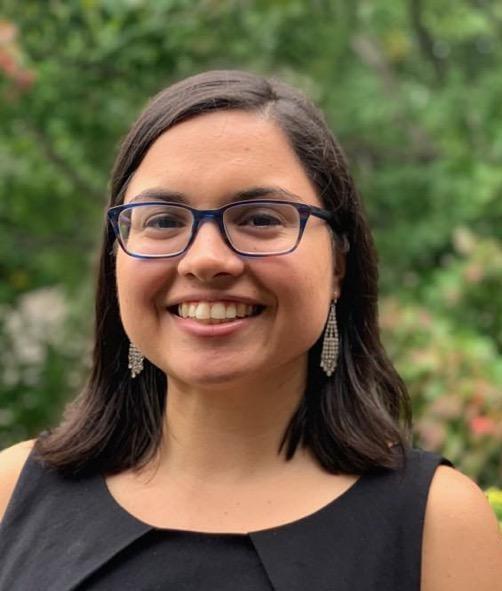
Michelle Velez
Program Director
Michelle Velez (pronouns: she/her) is the Program Director at EGA. In this role, she leads internal alignment of EGA’s long term initiatives and is responsible for the successful implementation of key programs, including supporting such programs through fundraising. She is a chief ally in the implementation of EGA’s strategic framework and Racial Equity Point of View, and ensures overall alignment of programs and event operations. She is also a resource for budgets, policies, and procedures to support EGA’s infrastructure.
Prior to joining EGA, Michelle has worked in the nonprofit sector for eight years. Most recently, she was a nonprofit strategy consultant at Julep Consulting where she designed and executed strategic planning processes and development strategy for nonprofits. Prior to that, she was Director of Development at New Yorkers for Parks where she managed a portfolio of institutional and individual donors, and collaborated to build an advocacy coalition resulting in a historic $44 million investment in the NYC Parks Department in 2019. Previously, Michelle was a consultant at CCS Fundraising, completing feasibility studies and capital campaigns for nonprofits. She began her career in the nonprofit sector as a Princeton in Latin America Fellow at Endeavor Mexico in Mexico City, supporting the growth of their network of local entrepreneurs.
She earned her MBA in Sustainability at Bard College, where she spearheaded the Bard MBA Diversity, Equity and Inclusion Committee’s first racial equity-focused curriculum review process. Michelle graduated with a B.S. in Environmental Science from Villanova University where she founded an on-campus garden, which she continues to support as an alumna.
Michelle enjoys taking walks around her neighborhood, cooking new recipes, and playing board games. She is a settler, living and working on the historic homelands of the Lenape and Matinecock peoples. This acknowledgment serves as a reminder of her ongoing efforts to recognize and honor not only the Lenape and Matinecock peoples, but all native tribes whose lands and water we benefit from. She acknowledges the environmental destruction of these lands from colonization, clear cutting, water pollution and over hunting, and the persistence of these Native Peoples who have survived the brutalities of colonialism to form communities that are still thriving today.